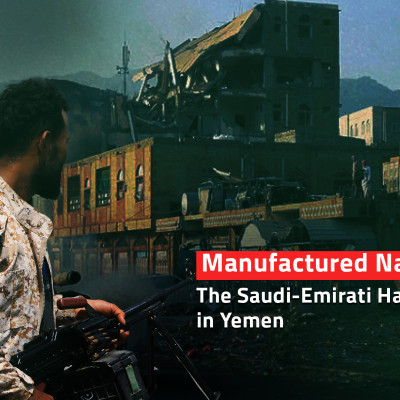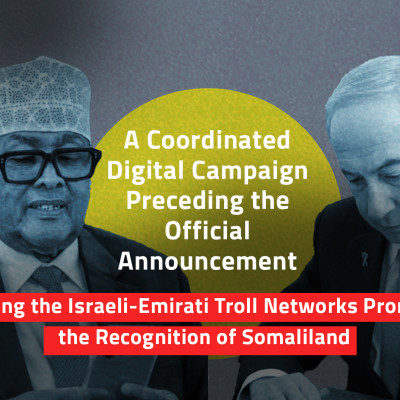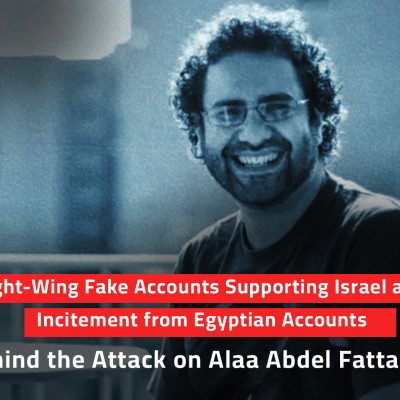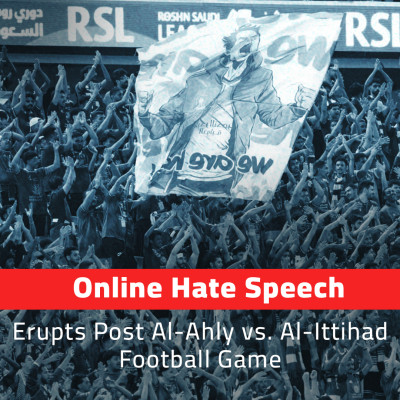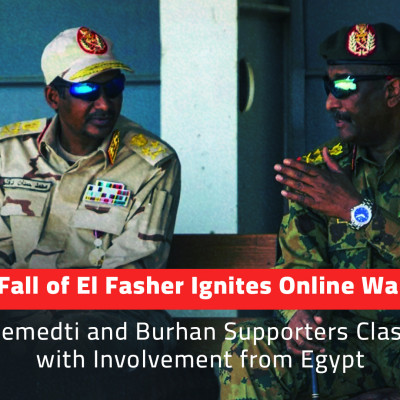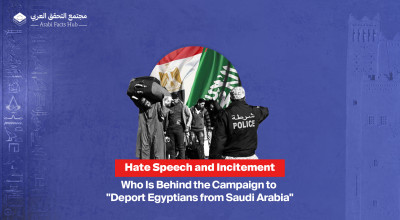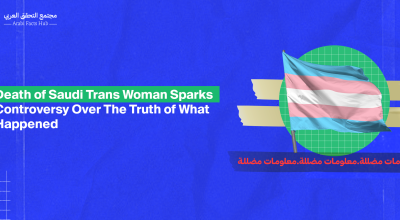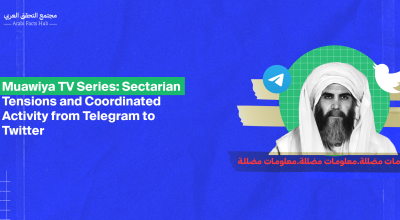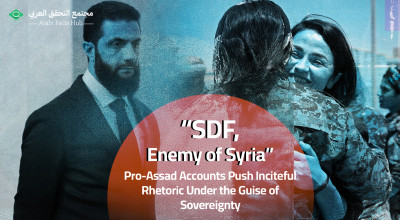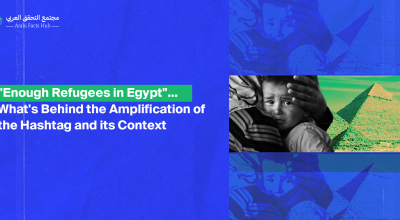Recognizing the State of Palestine: A Coordinated Gulf Propaganda Campaign and Clashes Between Saudi and Emirati Accounts
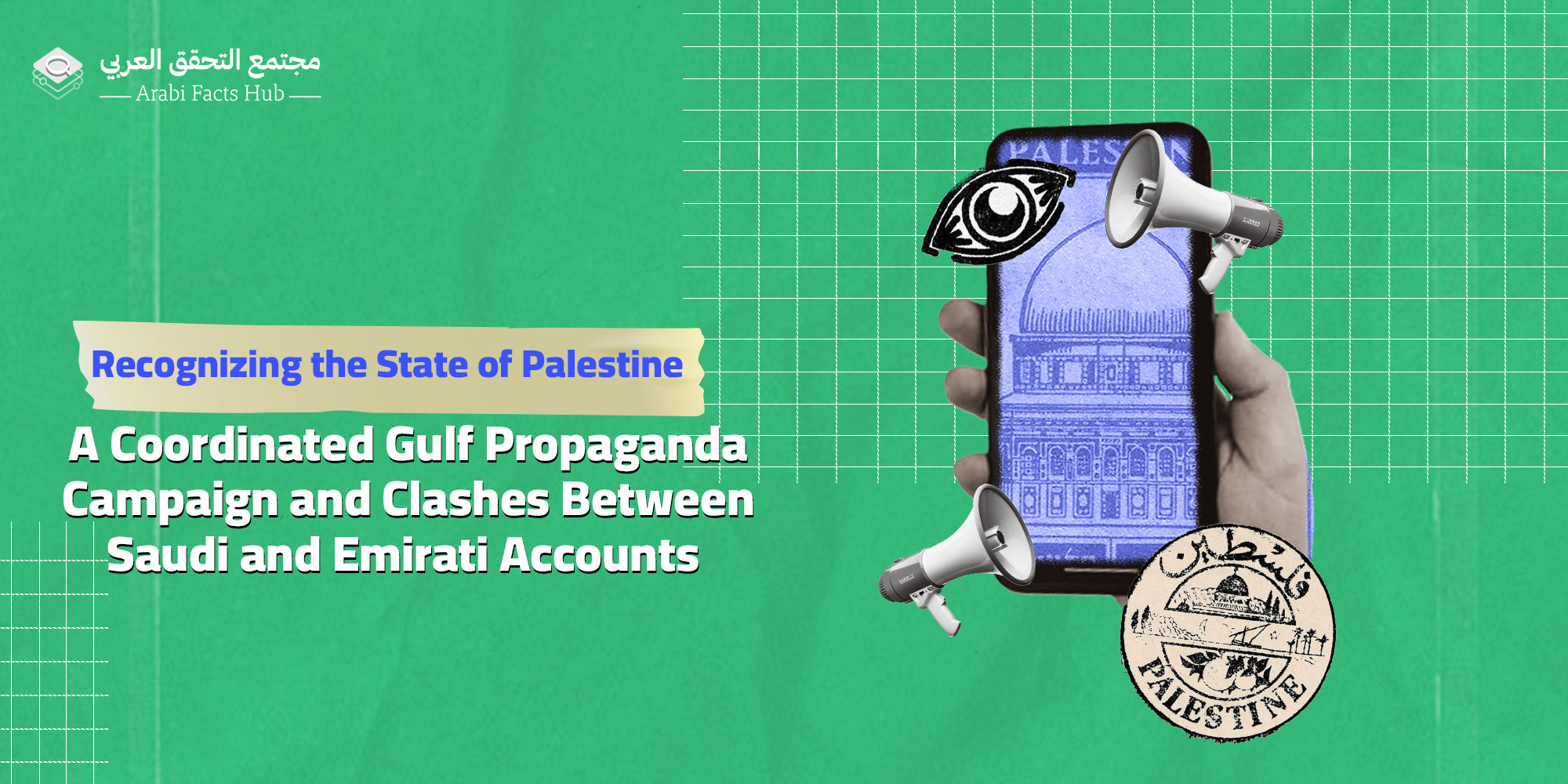
Saudi and Emirati propaganda campaigns were launched following the announcement by three European countries of their intention to officially recognize the State of Palestine, along with the support of 143 UN member states for its full membership. The campaigns attempted to promote the step as a result of pressure exerted by the two countries. Saudi accounts steered the discussion towards amplifying the Kingdom's role in international decisions regarding the Palestinian issue, while Emirati accounts attributed the recognition to the efforts of the UAE. This ultimately led to clashes between accounts supporting the positions of the two countries.
______________________________________________________________________________
The announcement by Norway, Spain, and Ireland on May 22 of their intention to officially recognize the State of Palestine was welcomed by Arab countries, and received opposing reactions from Israel, Germany, the United States, and other Western nations. In parallel, there was online mobilization to amplify the roles of Saudi Arabia and the UAE in influencing the decision taken by the three European countries.
A Saudi hashtag #SaudiArabiaSupportsPalestine resurfaced, featuring promotional comments about the Kingdom's role. This hashtag garnered 174,000 posts, viewed approximately 51,352,000 times, with an additional potential reach of 227 million views. These posts generated over 529,000 interactions, according to Meltwater, a leading social media analytics tool. Retweets and reposts constituted 66.2% of the total posts under the hashtag, amounting to 114,000 posts, a number similar to the posts from accounts that do not disclose their geographical location. Original posts made up 4.8%, totaling 8,300 posts, indicating signs of coordinated, non-organic activity.

#SaudiArabiaSupportsPalestine activity times and type of posts – Meltwater
Hashtag launched by Fatah supporter
The hashtag #SaudiArabiaSupportsPalestine first appeared about three months before the outbreak of the war in Gaza and was later promoted by Saudi accounts in May. On August 15, 2023, the account @AhmadGhaben13, which represents the interests of the Fatah movement, posted the first tweet using this hashtag on X (formerly Twitter). The account which was created in July 2022, features the flags of Palestine and Saudi Arabia, the hashtag #SaudiVision2030, and a picture of the Riyadh Towers in its profile.

The account posts updates about Saudi Arabia and developments in the Gaza war, along with content attacking Hamas. X's recommendations for similar accounts often include Fatah symbols and content for promoting the movement.

Among these similar accounts is @Nimr_Hs, which promotes the Palestinian Authority's General Intelligence Service.
These accounts were previously active under the hashtag #DownWithTheCoup, which appeared on X (formerly Twitter) last summer to denounce the anniversary of Hamas's takeover of the Palestinian Authority in Gaza on June 14, 2007. Accounts advocating for the Palestinian Authority were observed on that hashtag.
@AhmadGhaben13, which posted the first tweets using the hashtag, made sure to share the content with official Saudi accounts and other accounts supporting the Fatah movement. One such account, @Amaal56574300, features a cover photo of Saudi Crown Prince Mohammed bin Salman and Palestinian Authority President Mahmoud Abbas (Abu Mazen).
“Following Saudi pressure” and influencer accounts
Interaction on the hashtag peaked in May 2024 after 143 states voted in favor of granting Palestine full membership in the United Nations General Assembly. This came in parallel with the announcement of Spain, Norway and Ireland that they intend to officially recognize a Palestinian state. The hashtag was promoted by accounts that frequently engaged in online campaigns to support Saudi interests. In addition, influencers and content creators with thousands of followers also participated in the hashtag.
Drawing on their wide follower base, these influencer accounts contributed to emphasizing the hashtag. Of these accounts is Tareekh Aal Saud (the history of the House of Saud), @Alsaud_History, which published only two tweets on the hashtag generating 622 related tweets.

The Saudi account has 542 followers on X. Its owner says the account is “unrelated to any Saudi governmental agency.” The account has sister accounts on different social media platforms including an account on Youtube which operates from Saudi Arabia.
Interestingly, some of the accounts that promoted the Saudi role in the recognition of a Palestinian state, had participated in hashtags that attacked the Palestinian cause, such as #Palestine_is_not_my_cause.
An example is influencer Salman Bin Hethleen, whose tweets generated 8130 related tweets and was viewed 525,000 times. The account describes itself as “authorized media” and has a following of 450,000 on X and over a million on SnapChat. The account’s creation coincided with the start of the Qatari-Gulf crisis in June 2017.

Accounts related to what is called The Salmani Electronic Army participated in promoting the hashtag #SaudiArabiaSupportsPalestine, including the account “Trend and Salamani Army Management”, and Aziz Al Mutairi. Previous investigations by Arabi Facts Hub have uncovered the role of this online coalition in launching inauthentic digital campaigns. The Salmani Electronic Army comprises around 20 specialized teams. Among them are the "Trend Team" and other groups responsible for hacking or shutting down accounts. Some teams focus on coordinating with media personnel.
Saudi pressure and media coverage
In 22 May interactions peaked on the hashtag #SaudiSupportsPalestine at a publishing rate of 57,000 tweets. Earlier on the 11th of the month, tweeting increased on the hashtag when 143 states voted in favor of granting Palestine full UN membership. This was accompanied by an increase in the use of the words “Saudi pressure” on X, which is part of the phrase “...after Saudi pressure” which was tweeted by the account “American News” @NewsNow4USA.
The account did not post any tweets using the hashtag, but tweets containing this phrase generated 164 related posts. Other accounts shared screenshots from the "American News" account, indicating a connection between the promotional campaign and the latter's posts. These posts were often shared on their own or accompanied by images of Saudi Crown Prince Mohammed bin Salman or King Salman bin Abdulaziz, along with the hashtag #MiddleEastLeader.
The "American News" account was created in July 2020, a few months before the U.S. presidential election. The account describes itself as "the premier Arabic platform for real-time coverage of American news by the Events Media Network" and is managed from Texas, according to its profile information. However, some posts reveal a connection to Saudi Arabia. The first post on this account, published on August 17, 2020, states: “Thank God for the blessing that is Saudi Arabia, my great country.”
Saudi media outlets used the hashtag in their posts, including the account of the program "Huna Al Riyadh" aired on the official Al Ekhbariya channel, which also shared the tweet. Saudi media dedicated significant coverage to highlight "Saudi efforts to recognize Palestine," using repetitive and similar headlines.
Who Created It and Who Saved It: Verbal Sparring Between Saudi and Emirati Accounts
Amidst the Saudi push to amplify the Kingdom’s role, an online verbal sparring broke out as Emirati accounts also attempted to promote the UAE's role in the Palestinian cause. Both Saudi and Emirati accounts used similar promotional phrases, with slight modifications.
Key participants in this exchange included Saudi journalist Hussein Al Gawi and Faisal Bin Nasser (Al Ka’am), as well as Emirati accounts displaying the UAE flag or images of Sheikh Zayed bin Sultan, the UAE's founder.
When Saudi accounts claimed, "Omar conquered it, Saladin liberated it, and Saudi Arabia protected it by creating a Palestinian state," Emirati accounts responded with, "Omar conquered it, Saladin liberated it, and the UAE saved it." They also posted, "The dream became a reality after the UAE's successful political and diplomatic efforts at the United Nations."
Verbal clashes between Saudi and Emirati accounts escalated to the point of mocking officials. For example, Saudi accounts ridiculed the shoes worn by UAE Foreign Minister Sheikh Abdullah bin Zayed during his visit to Tehran to offer condolences on the death of Iranian President Ebrahim Raisi.

In addition to mocking specific issues, such as the three Emirati islands occupied by Iran—Greater Tunb, Lesser Tunb, and Abu Musa.Thus, the announcement by some European countries of their recognition of the State of Palestine sparked Saudi and Emirati propaganda campaigns amplifying each country's role in this recognition. This ultimately led to an online war of words between supporters of the two campaigns.

















